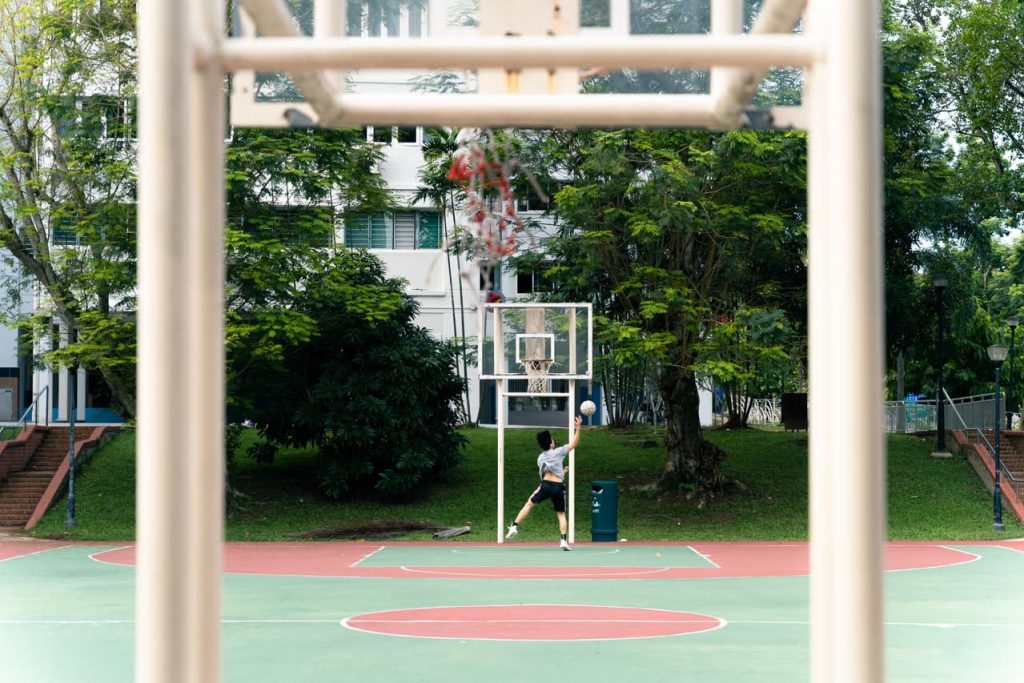Top image: Stephanie Lee / RICE file photo
Minister of Education Chan Chun Sing recently announced that Project Work (PW) will become a pass/fail subject, and will no longer count towards university admission scores from 2024 onwards.
About damn time, some would say. The news was met with jubilation—people left bittersweet comments about how the changes should have arrived sooner.
Why the relief? PW is a subject that first-year ‘A’ Level students are required to take. It is a year-long project that involves identifying a societal problem and coming up with a solution. Like salespeople pitching to clients, students would then have to present their project at the end of the year in the form of a written report and an oral presentation.
The subject has become notorious among students for being overly stressful, unnecessary and a smear on their brief junior college (JC) experience.
For JC students who would have less experience with group work (as compared to polytechnic students), PW gives them opportunities to develop their communication and collaboration skills. It’s a form of holistic education, to break through the culture of mugging and individualistic learning.
For all its theoretical merits, PW can be an absolute nightmare in practice. A cursory glance through the dozens of angry rants on the SGExams Reddit thread assures, at least, that it’s a common sentiment.
Even for graduates who’ve left their years in JC long behind, PW remains a poignant memory.
“It definitely was one of my clearest memories from JC. Because those two years felt like they went by very fast but the whole PW period was agonisingly long and painful,” says 21-year-old Emma*, a Year 3 university undergraduate.
Groupmates From Hell
The biggest complaint that most students have about PW: Group mates from hell. In a PW group, there are slackers and tankers. And the slackers always win.
As a colleague jokes when I ask him about his PW experience: “The people who like PW are the ones who didn’t do work.”
If there’s one life lesson from PW that applies to the working world, it’s that people have the tendency to put less effort into a task when they are being judged as a group.

Emma’s group suffered the same fate as many out there. As the appointed group leader, it was especially difficult.
“At the start, everyone was very busy with co-curricular commitments and other classes, so PW wasn’t much of a priority to us then.” But as the year went by and deadlines loomed closer, she had members who remained unresponsive.
“One of my group mates wouldn’t join us for group meetings to discuss our project. So when we had consultations with our tutor, she wasn’t able to contribute or answer any of his questions.”
Even among the remaining members, their clashing working styles made it very difficult for them to communicate. It often led to spending extra time resolving internal conflicts and fights instead of on their actual project. Her five-member team ended up only having three productive members.
Arguably, it’s a small taste of life after school, where there will always be people who don’t pull their weight in the workplace. From Emma’s experience in university so far though, her projects never reached the level of stress she got from PW in JC.
The stakes are high. If you lose out on the A grade for PW, it can cost you opportunities for certain majors and scholarships.
At 17, students aren’t exactly the most level-headed individuals either. And PW just so happens to be a part of the painful process of growing up. Perhaps the lofty goals the PW curriculum set overestimates the amount of emotional intelligence and responsibility teenagers have.
Is it a necessary evil to get students used to real-life situations of working with people? That’s debatable.
“It’s made me more pragmatic in how I view group work,” Emma ponders.
“Now, if there are people who don’t contribute, I’ll just do more work to cover their parts. I don’t want my grade to be affected by someone else’s laziness.”
There is no good that can come from trying to collaborate with people who simply aren’t motivated. Maybe that’s the real learning point here.

The Lack of Support
Another aspect of PW that has come under fire is the support from teachers.
“There was a frustrating lack of guidance because our tutor was very insistent on us figuring things out on our own,” Emma says. “We only finally got pointers from our tutor the day before our written report was due.”
The written report stands for 51 percent of the overall PW grade. It’s a fact made even more pressing when her group was forced to change the tutor-approved topic two weeks before the report’s deadline.
In a desperate attempt to finish the report, they had to pull an all-nighter working at one of her group mates’ houses. They even had at least 20 other friends from other classes, who had already finished their reports weeks or even a month ago, helping them to look through their work and giving pointers up until just hours before it was due.
All in all, it was highly demanding on students who also had the pressure and stress of studying for their promotional examinations.
“I never left school before sunset and I’d go home basically just to sleep. In six hours I would have to wake up and go back to school to work on PW again. I think there was even a time when I had a fever but we had a project consultation so I just went to school anyway.”
Clement*, 33, is one of the few who had to repeat the subject.
“Because I’m not very good at public speaking, I totally screwed up and fumbled my way through during the rehearsals and the actual exam.”
“It would have been great if the teachers pointed it out at the start and helped me sharpen up, but they did jackshit,” he says. Clement managed to scrape through with a passing grade the second time around.
“I guess that’s the same thing you face in future workplaces: Senior supervisors who don’t know what they’re doing.”

The Luck of the Draw
This lack of support offered by teachers varies among schools, of course. But the common thread painted by past JC students points out the lack of dedicated PW specialists. Teachers assigned to lead PW curriculums might already have another content-based academic subject they need to put a bigger focus on.
Stretched between their main ‘A’ Level subject and PW, it is obvious which takes precedence.
Because the reports are graded internally, I often hear from seniors and my peers that sometimes it can boil down to luck if you get a good grade or not. Luck in committed group mates; luck in assigned teachers.
Schools run different curriculums, which influence your PW experience. And even in any one school, the teacher that you get can greatly affect your chances of an A grade as well. In my personal experience, I often hear that I was lucky to get a group that was on the same page as me, with a teacher who was supportive.
But for something as important as your university admission score, how much can be left up to luck?
Now that it’s a pass/fail subject that doesn’t count (as much), there is hope that the pressure on both students and teachers alike will let up.
“It’ll make things a lot less stressful because there isn’t a need to aim for an A and outperform most of the other groups around you,” says Emma.
“It’s good to learn how to work in a group—but it doesn’t have to come with such high expectations that can breed a toxic environment. Getting rid of a letter grade can reduce that unhealthy mindset.”






